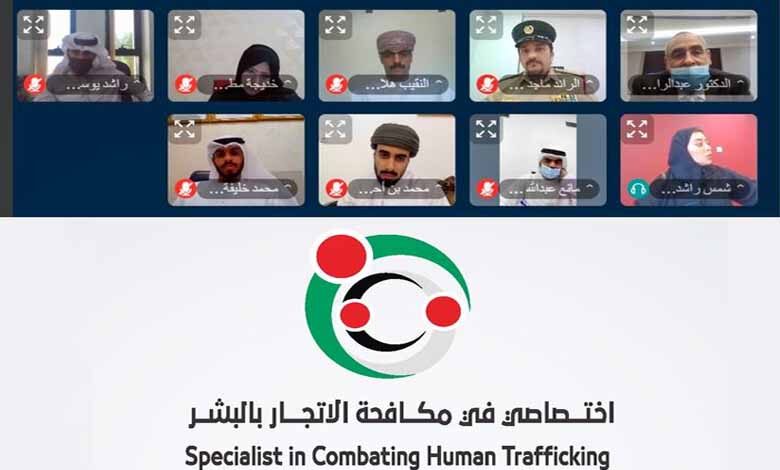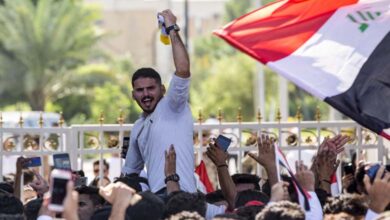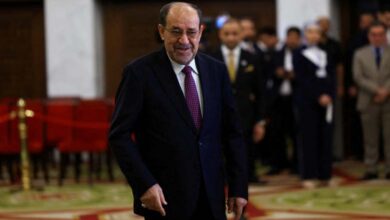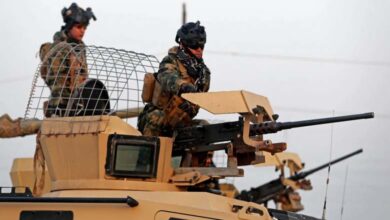UAE’s Fight Against Human Trafficking: Pioneering Cross-Border Efforts

The UAE is making pioneering efforts to combat human trafficking at the local and international levels, at various awareness, security, human rights and legislative levels.
Efforts that are consistent with the moral and humanitarian frameworks that characterize the UAE as an oasis of humanity and a beacon of tolerance and a safe and secure country that preserves human dignity and promotes its values and principles throughout the world.
As part of these efforts, and coinciding with the International Day to Combat Human Trafficking, which falls on July 30 each year, the UAE Public Prosecution launched a social media awareness campaign to promote a legal culture among members of society with the aim of spreading the culture of law as a way of life.
This awareness campaign comes days after the UAE Ministry of Interior recorded a major success during Operation Libertera, a global effort to combat smuggling of migrants and human trafficking. The campaign was coordinated by the agencies of 47 countries and resulted in the arrest of 286 people, the rescue of 430 victims of human trafficking, and the clearance of 4000 illegal immigrants in 74 countries around the world.
It also comes nearly 3 weeks after the UAE and Georgia signed an agreement on enhancing cooperation in security and combatting all forms of crime, including human trafficking.
It also comes about a month after the Dubai Foundation for Women and Children organized this year’s training program in cooperation with the Indian consulate in Dubai to develop the skills of the diplomatic missions involved in human trafficking issues.
Global efforts
Global efforts continue and increase to highlight the UAE’s pioneering experience in combatting this transnational crime.
It is a pioneering experiment based on the Federal Act No. 51 of 2006, as amended by the Federal Act No. 1 of 2015 on combatting human trafficking. The UAE was the first to enact a comprehensive law to combat human trafficking, which protects victims and punishes violators of their rights and deters those who might be tempted to commit such crimes.
The National Committee to Combat Human Trafficking was established by decision of the Council of Ministers in 2007 to coordinate efforts to ensure the effective application of Federal Law No. 51 of 2006, as a framework that coordinates and unifies the efforts of various State institutions to combat human trafficking crimes.
It has also established several community centers to deal with the impact of such crimes and contain them. It has also provided legal, psychological and material assistance to help victims return to their normal lives and integrate them into society so as to achieve family and community stability.
The United Arab Emirates currently maintains a network of shelters to protect and rehabilitate victims and has a dedicated hotline to facilitate reporting of cases of trafficking and enable victims to seek protection.
Internationally, by signing agreements with several countries to share best practices on the prevention of trafficking in human beings and to promote assistance to victims of this crime.
Security effort
As part of its latest security efforts to combat human trafficking, the UAE Ministry of Interior has participated in Operation Libertera, a global effort to combat smuggling of migrants, human trafficking and other related crimes on these intercontinental routes coordinated by the International Criminal Police Organization (INTERPOL) with the participation of 47 countries. The UAE played a pivotal role as the host of the operations room for participating teams from the Middle East, Asia and North Africa.
The results of this global operation were announced on July 26 at a virtual press conference attended by Interpol officials, representatives of the Ministry of Interior and participating countries, as well as local and international news agencies and newspaper reporters.
This international operation, which was coordinated by all the agencies of the participating countries, led to the arrest of 286 people and the rescue of 430 victims of human trafficking, along with the clearance of 4000 illegal immigrants in 74 countries around the world, in addition to a number of operational activities carried out by the police agencies all over the world as part of Operation Libertera, including raids, intensification of patrols and exchange of information. The search operations in airports and border crossings amounted to 500 thousand operations and 60 new investigations were launched worldwide.
The participation of the United Arab Emirates, represented by the Ministry of the Interior, is part of its keenness on effective coordination with all countries and within international institutions and organizations to strengthen the fight against all forms of crime, especially crimes related to human trafficking. The United Arab Emirates is a key partner in the global campaign against this transnational crime.
The UAE Ministry of Interior has adopted several mechanisms to protect human rights, in particular to address all forms of human trafficking, including raising awareness, promoting a culture of combatting human trafficking, and cooperating with Interpol by exchanging information on human trafficking crimes, and monitoring those involved and suspected of involvement in such crimes.
The UAE is the first country in the region to enact a comprehensive law to combat human trafficking, Federal Law No. 51 of 2006.
Under the law, human trafficking includes all forms of sexual exploitation, the involvement of others in prostitution, slavery, forced labor, trafficking in human organs and forced service, begging and slavery-like practices.
Because of the importance of punishing those involved in crimes of human trafficking, in bringing justice and victory to the victims and in preserving human dignity, and in deterring those who beg themselves to commit those crimes, the law was firm.
International agreements
The United Arab Emirates also believes in the importance of concerted international efforts to combat a crime that is one of the most pervasive transnational organized crimes. It participates in many regional and international efforts to combat human trafficking and regularly raises the issue in relevant international forums.
The United Arab Emirates has signed agreements with several countries to share best practices on preventing human trafficking and enhancing assistance to victims of this crime.
As part of its latest efforts, UAE Deputy Prime Minister and Minister of the Interior Lt. Gen. Sheikh Saif bin Zayed Al Nahyan signed an agreement on July 6 with Georgian Minister of Internal Affairs Vakhtang Gomelauri to strengthen cooperation in security and crime prevention between the UAE and Georgia.
The agreement, signed remotely, aims to strengthen mutual co-operation between the two countries and develop bilateral relations in the fields of security and police, particularly in the areas of enhancing traffic safety, combatting all forms of crime, including human trafficking, cybercrime, money laundering, combatting terrorism, drugs, psychotropic substances and crimes of sexual exploitation, in addition to exchanging experiences in the areas of using modern technologies and artificial intelligence in enhancing police work.
Awareness campaigns
One of the most important pillars of the UAE’s strategy to combat human trafficking is to seek to prevent crime from occurring in the first place and to prevent society from occurring. This requires promoting awareness, which the UAE has not overlooked, taking into account the cultural diversity and different nationalities that live in the UAE.
In that regard, the relevant authorities in the United Arab Emirates have made vigorous efforts to implement awareness-raising programs for all segments of society in general and for potential victims in particular.
As part of its latest efforts, the Dubai Foundation for Women and Children organized this year’s training program in collaboration with the Indian consulate in Dubai to develop the skills of diplomatic missions involved in human trafficking issues.
The training program was designed to achieve a set of objectives, the most important of which is to raise awareness among foreign entities on human trafficking issues, to give each side an active role in cooperating with the UAE’s active efforts in addressing this crime, as social phenomena require comprehensive and complementary work.
The program also aims to strengthen co-operation between the foundation and the Indian consulate. A large community of Indian nationals live in the UAE, so it is important to educate them about these social phenomena and train them in the best practices adopted worldwide in dealing with social and psychological situations.
In the context of prevention efforts, and in order to prepare a qualified group of staff working in different areas in the UAE to deal with all types of human trafficking issues and ensure the protection of victims, several training programs have been offered to specialists to give them the necessary scientific and practical skills and experience.
In this regard, the program “Specialist in Combatting Human Trafficking” (Sixth Batch) was launched in October and November by the General Command of the Dubai Police and the Dubai Judicial Institute in cooperation with the National Committee for Combatting Human Trafficking Crimes and the United Nations Office on Drugs and Crime over a 5-week period.
The sixth installment of the program included 91 personnel from 30 different police agencies in the UAE, local and federal prosecutors, the Emirates Society for Human Rights, the Dubai Airports Corporation, and women and children’s care homes in the UAE, 24 participants from the Kingdom of Saudi Arabia, 2 from the Kingdom of Bahrain, 5 members of the Gulf Police Service, and 4 personnel from the Sultanate of Oman and the State of Kuwait participating for the first time.
The program aims to develop qualified cadres of citizens working in all departments and institutions concerned with combatting human trafficking in the UAE and to provide them with the necessary scientific and practical skills and expertise so they can contribute to strengthening the state’s efforts to combat this type of crime and ensure the protection of victims. This is in addition to developing the capacities of specialized personnel working in the fields of combatting human trafficking, explaining the laws, conventions and local and international conventions related to human trafficking, acquiring them with research and investigation skills, acquiring the best ways and means to investigate human trafficking, and providing personnel with scientific information and necessary skills to deal with victims, and the best local and international experiences and practices.
Continuous efforts
Despite the spread of the coronavirus pandemic, the centers and institutions that care for and shelter victims of human trafficking in the UAE have implemented all the precautionary measures that must be taken, whether they concern victims or employees working in these institutions, and have provided medical tests and services in cooperation with health authorities, in addition to providing nurses and supervisors in these institutions around the clock.
In turn, the National Committee to Combat Human Trafficking Crimes provided health and legal care to victims and support their psychological stability under the exceptional circumstances related to the spread of the novel coronavirus pandemic.
The efforts of the United Arab Emirates to work with all partners at the national and international levels to combat human trafficking continue, amid indications that the State’s efforts are bearing fruit and are on the way towards the final elimination of those crimes, as part of its ongoing quest to establish a society focused on justice, security and tolerance.












